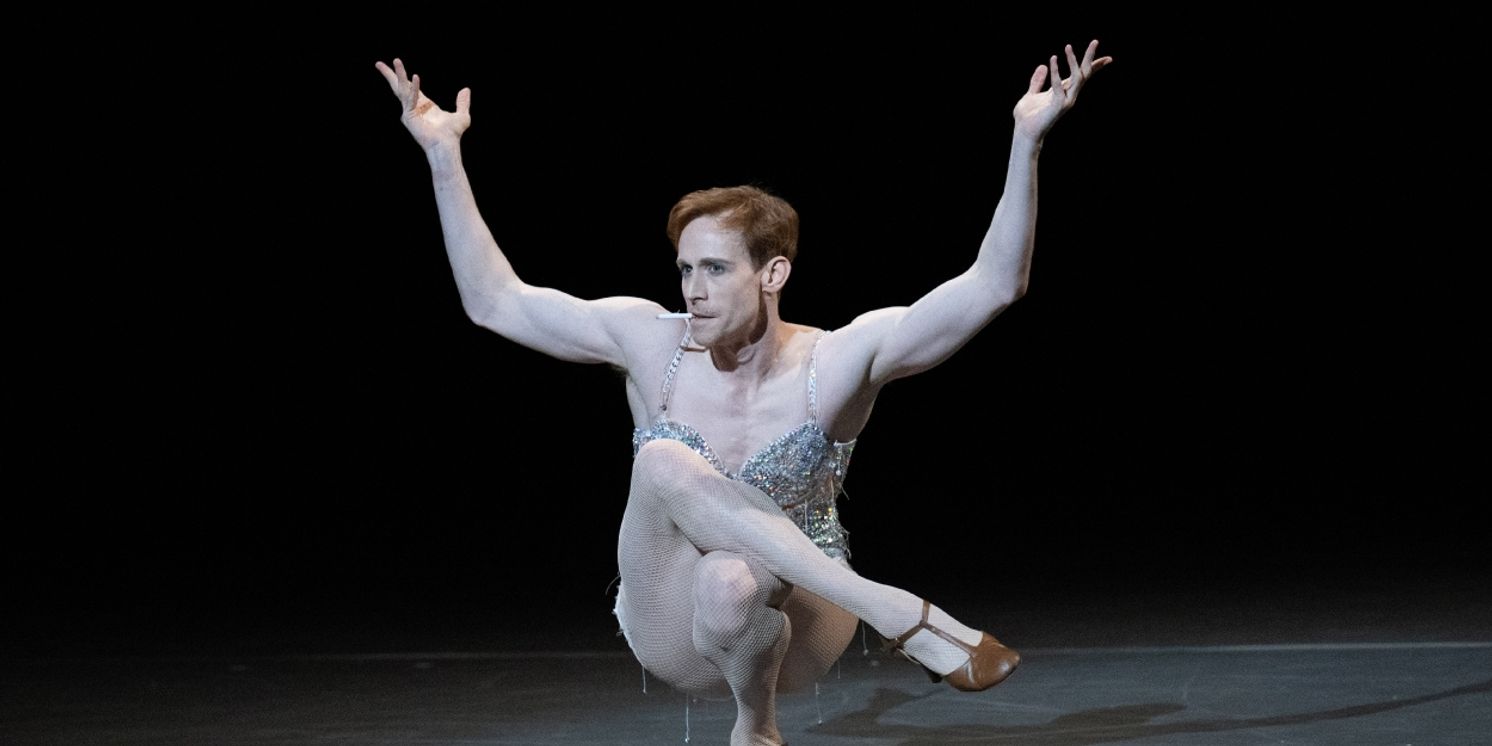Review: MEN IN MOTION, London Coliseum
The annual gala celebrates it's tenth anniversary

![]() Ivan Putrov's annual celebration of the male dancer returns to the Coliseum with a diverse programme of work, old and new. "Ballet conjures up an image of tutus and pointe shoes," he says, keen to showcase what else the art form can offer since 2012.
Ivan Putrov's annual celebration of the male dancer returns to the Coliseum with a diverse programme of work, old and new. "Ballet conjures up an image of tutus and pointe shoes," he says, keen to showcase what else the art form can offer since 2012.
In nineteen short works, the audience for this one-off performance are presented with a wide breadth of choreography, from Ruldoph Nureyev to Arthur Pita, with a heavy focus on the contemporary side. The evening features some of the finest male dancers in Europe but the quality and the pace is inconsistent. A thrilling ninety second solo, followed by an abstract trio with no clear objective. It's at times confusing but the charismatic performers keep us engaged.
The highlights were the additions which raised a laugh, including a star turn from former Royal Ballet Principal Edward Watson in A Sheila Dance, a glittering romp from the aforementioned Pita. Watson appears in a sparkling, skimpy leotard, he ambles around lethargically, but oh so elegantly, cigarette in mouth throughout, before throwing himself unforgivingly into the splits and other bodily contortions then wandering off again. Set to music from Mozart, it's surreal and Watson is understated but hilarious.
It was unfortunate for Royal Ballet Soloist Leo Dixon that many of the audience thought the interval had started before his performance of Volver Volver, another Pita creation. In another display of high camp, Dixon showboats in front of the velvet curtain in a smart dinner jacket before appearing to be shot twice. He then transforms into Spiderman (bear with me) and dances a sombre solo that displays vulnerability. Dixon's quality and soft elegance translating even while dressed for a belated Hallowe'en party.
To more sincere matters then and appearances from Vadim Muntagirov in both acts. Firstly, a polished delivery of the Prince's Solo from Swan Lake, and Adagio from Alexey Miroshnichenko. Both are opportunities to marvel at Muntagirov's beautiful line and creamy soft landings from picture perfect jumps but there are a few wobbles, and it's not a vintage display.
Fumi Kaneko, the sole female representation of the evening, is reliably charming and heartfelt with Luca Acri in the opening, sugar-sweet Le Spectre de la Rose. Acri is athletic and powerful, and not wholly suited to the floaty romance of the Fokine's choreography. Better is his partnership with Matthew Ball, in Matthew Bourne's Swan Lake. Ball's erratic, flighty swan contrasts with Acri's lovestruck Prince. Ball later has a solo in Christopher Bruce's Swansong, but it's too brief and fleeting to make an impact. More satisfying in his duet, Us, with fellow Royal Ballet dancer Joseph Sissens, their committed partnering and emotive score working to great effect.
There are also enjoyable appearances from Ballet Black's Jose Alves, the best of which is Le Train Bleu, a rarely seen but joyful solo by Bronislava Mijinska. Peter Leung's Eightfold: Love does not do much aside from showcase Alves' rock solid technique.
There are brief but exciting contributions too from Royal Swedish Ballet's Dmitry Zagrebin who first whips up a storm in an exhibition of jumps and turns in Gopak, Taras Bulba and later demonstrates his flexibility and strength to close the evening in Edward Stierle's Lacrymosa.
It's not possible to pick through each performance but the above linger most in the memory from the evening's vast offering. The selection of dancers, varied in style and experience, with the breadth of classical and contemporary choreography is bravely programmed and has something that will appeal to all.
Photo Credit: Elliot Franks
Reader Reviews
Videos

